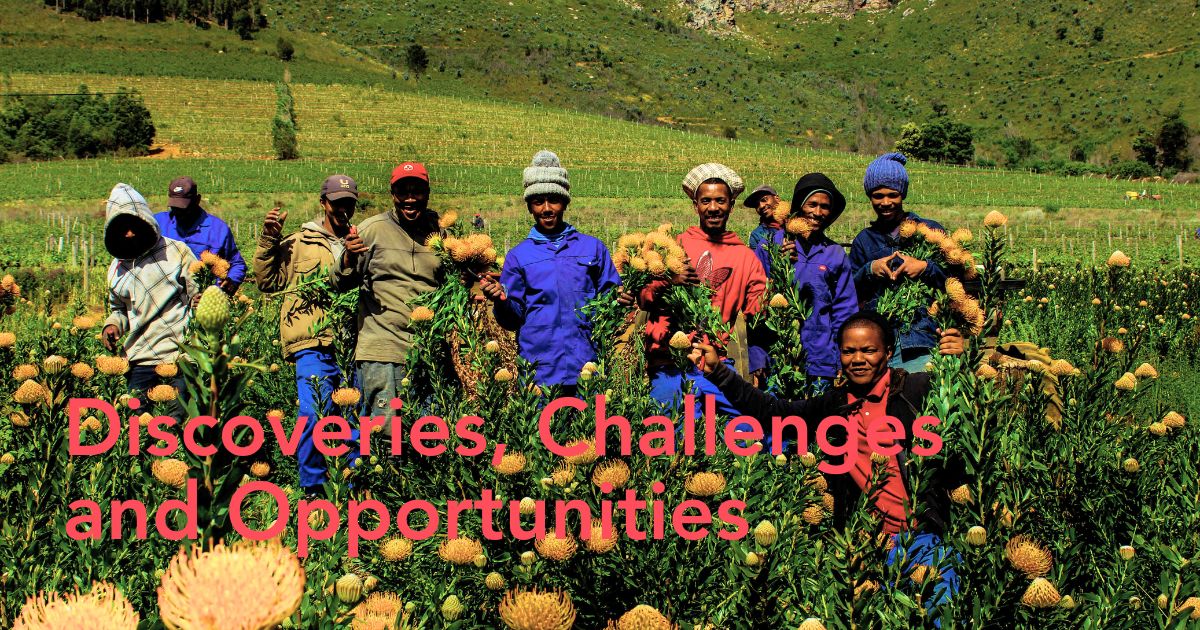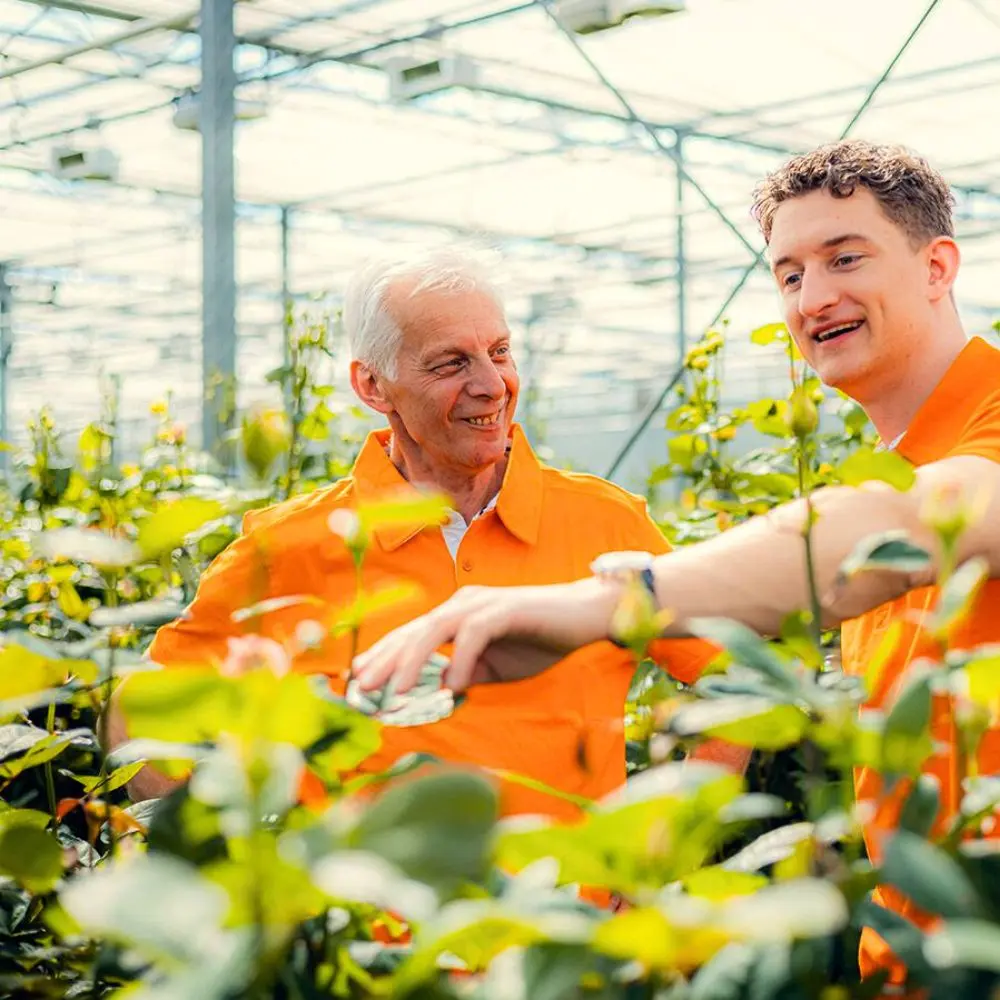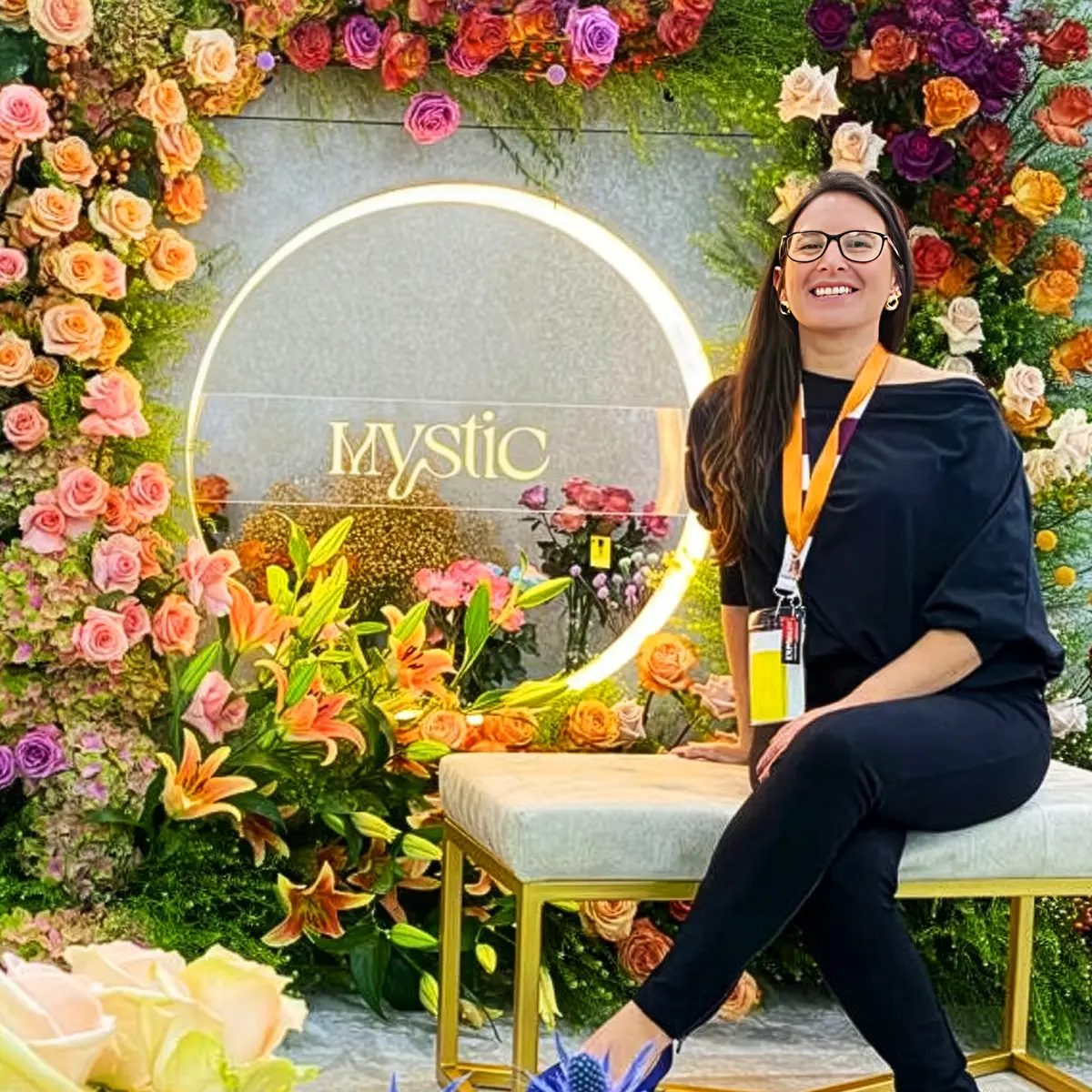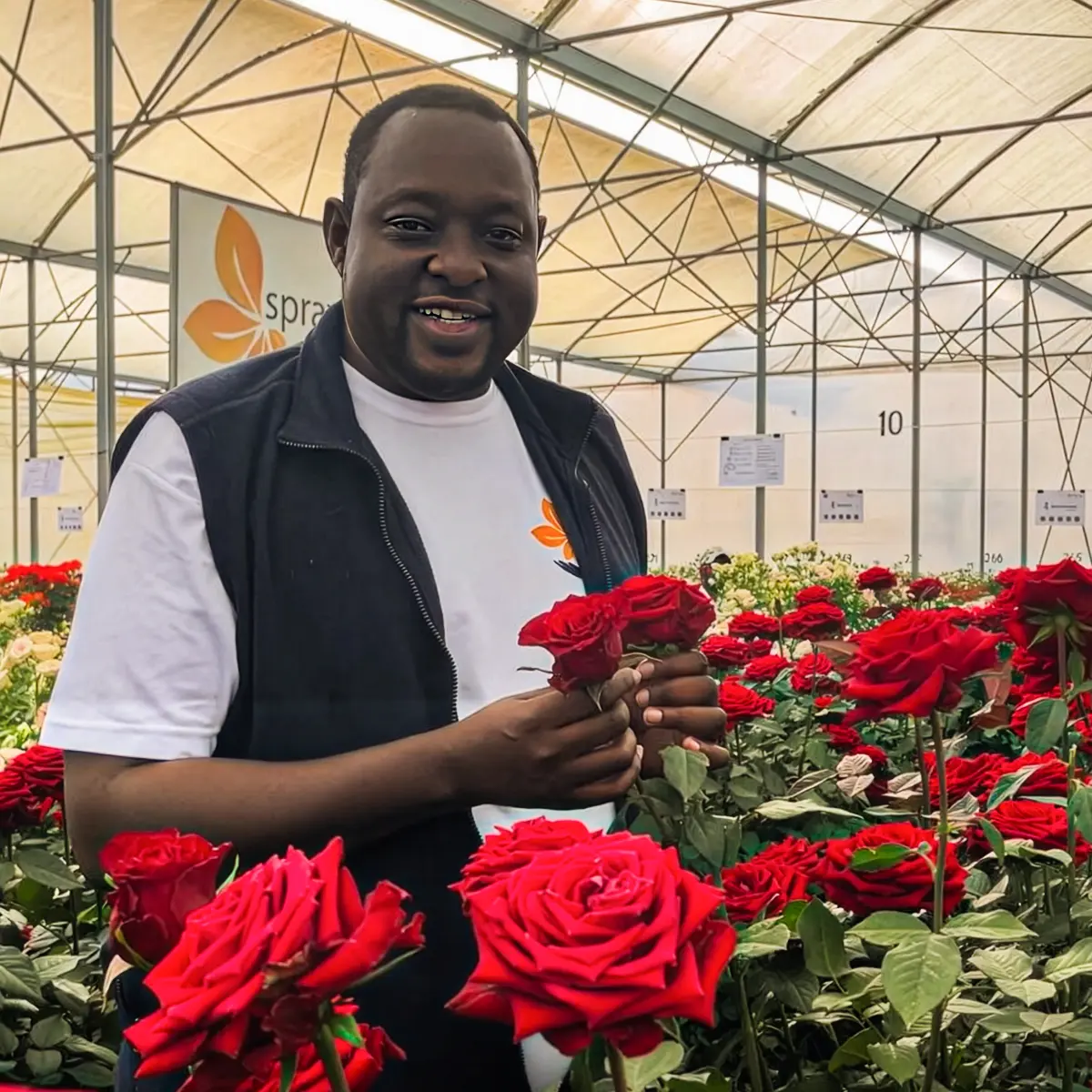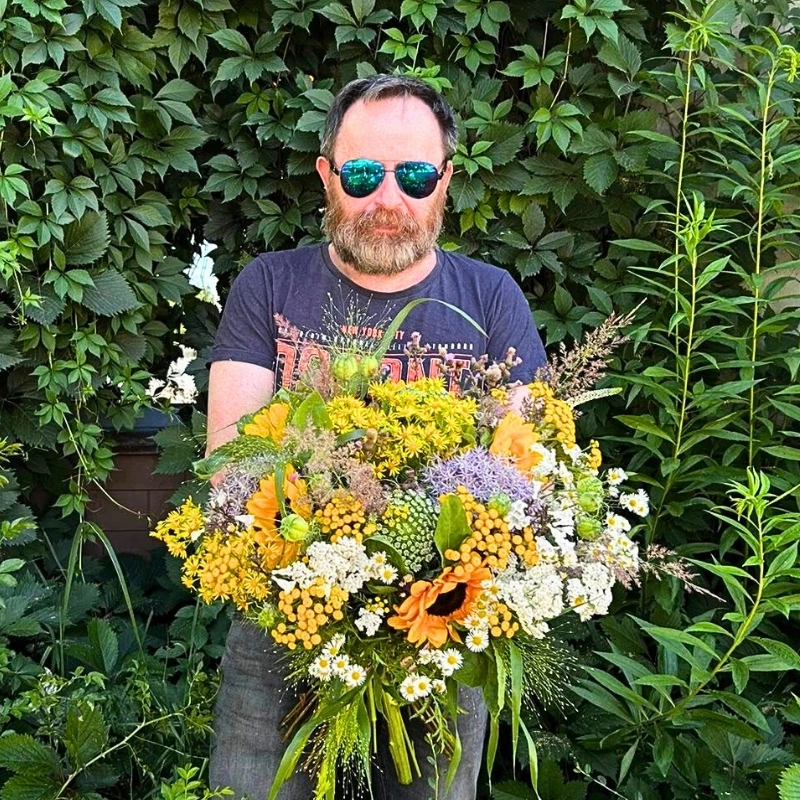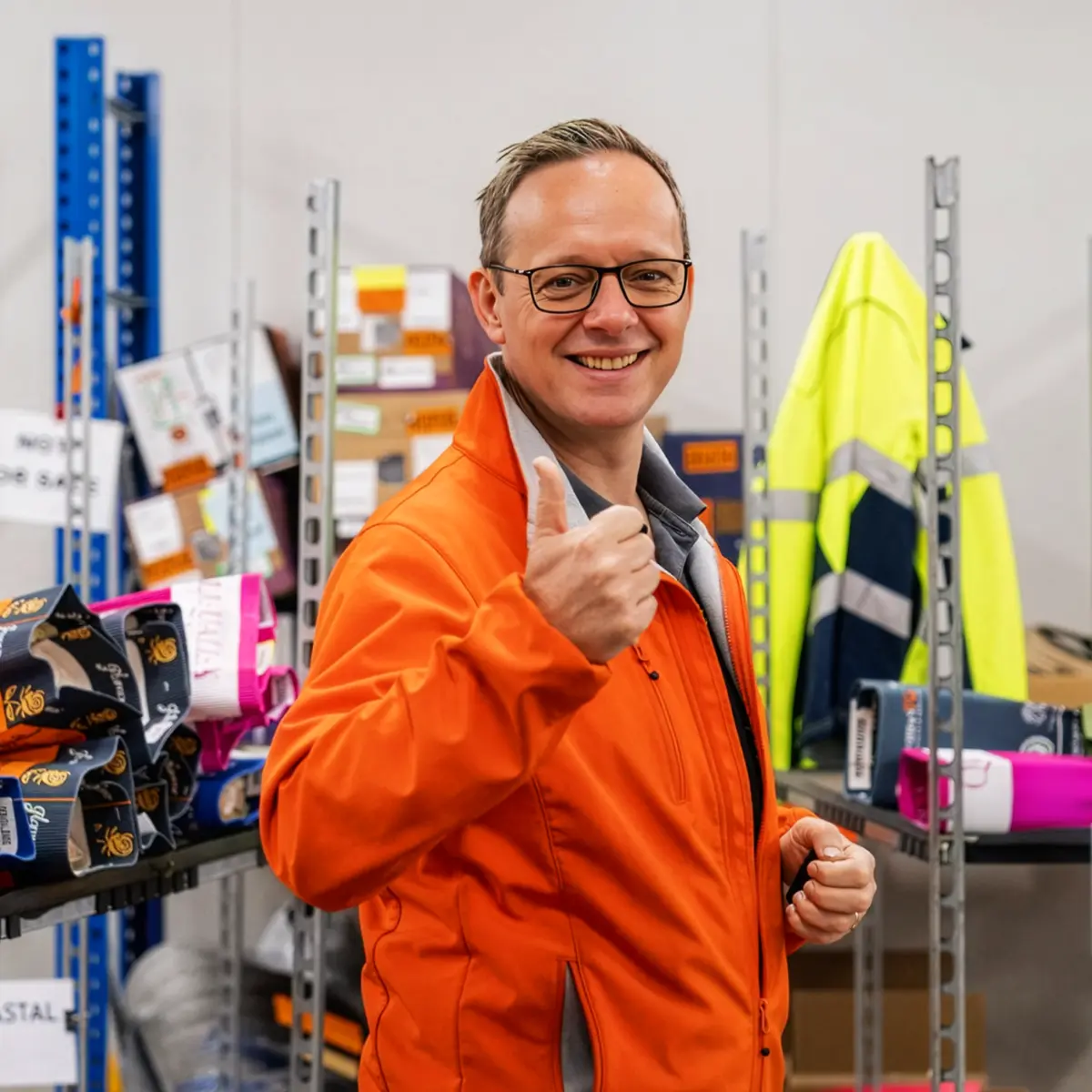In the world of floriculture, few names stand out like Caroline O’Brien. As the co-founder and managing director of Future Fynbos, she is not just a breeder—she is a visionary shaping the future of cut flowers. With a deep-rooted passion for the Proteaceae family and a relentless drive for innovation, Caroline’s journey blends science, art, and storytelling, bringing to life varieties that redefine the floral industry.
But what does it take to create flowers that didn’t exist before? What challenges does a breeder face in an industry where nature, technology, and market trends constantly evolve? In this exclusive interview, Caroline shares her insights on navigating the complexities of floral breeding, the power of digital transformation, and the resilience required to thrive in an ever-changing landscape. Read on to discover the inspiration behind her work, the threats facing the floral industry, and the exciting future she envisions for Fynbos on a global scale.
Question 1
For those who don’t know you, who are you, and what do you do?
"I am Caroline O’Brien, the managing director and co-founder of Future Fynbos. Our company specializes in breeding new varieties of cut flowers and pot plants, with a focus on the Proteaceae family. My journey in this industry began with a Master’s degree at Stellenbosch University, where I studied the Fynbos species Brunia albiflora under the guidance of Professor Jacobs. My background includes experience in commercial Protea farming and nursery management, which has given me valuable insights into the technical and commercial aspects of the floriculture industry.
I am also a mother of two daughters and live in Cape Town, South Africa, where I balance my passion for flowers with family life. My role involves overseeing breeding programs, research, and global marketing efforts to ensure our varieties and brands reach new markets successfully. My interest in Fynbos and Proteaceae, in particular, comes from hiking with my family in the magnificent mountains of the Western Cape, South Africa. My father knew all the names of the Fynbos species and trees, and hiking through the Fynbos was like a treasure chest unfolding. This deep appreciation for nature and its diversity eventually led me to pursue a career in horticulture. I was fortunate to be offered a Master’s study, which became the foundation for my journey in the floral industry."

Question 2
What is so special about your job?
"My job is a unique combination of science, art, and storytelling. As a breeder, I have the privilege of working with nature to create something entirely new—developing plants that didn’t exist before and improving their traits to make them more commercially viable. Beyond the science, it is incredibly rewarding to see our flowers inspire florists and designers worldwide. Proteaceae* make up only 0.01% of the global cut flower market, so there is a vast opportunity to introduce people to these stunning flowers. The challenge of positioning them as luxury products, rather than niche or regional flowers, adds another layer of excitement to my work. Every season brings discoveries, challenges, and opportunities, making no two days the same."
* Note from the editor: Proteaceae is a large family of exotic flowers with bold shapes, leathery leaves, and a strong architectural presence, such as the South-African-grown Proteas, Leucospermums (a.k.a. Nutans), and Leucadendrons.

Question 3
Are there any specific challenges or obstacles you’ve faced at work, and how did you overcome them?
"In my role, several challenges arise, but two significant ones stand out: the long-term investment required for breeding new plant varieties and the protection of intellectual property (IP). Firstly, breeding new varieties is a lengthy process that can take over a decade. This demands patience, persistence, and a strong belief in the end goal. To navigate these challenges, I continuously learn, collaborate with experts, and remain adaptable and determined. The process is akin to playing a long-term game of strategy, where each step requires careful consideration. Secondly, as a small private breeding company, ensuring the protection of our new varieties is crucial. Intellectual property protection is essential to secure returns on investment and maintain the financial sustainability of our breeding programs.
However, this poses a significant challenge. Unauthorized propagation can undermine years of research and development, highlighting the need for robust IP mechanisms. It's not just about legal enforcement; it's also about educating growers on the value of licensed products. By respecting IP rights, growers can benefit from enhanced competitiveness and increased value in their production. For instance, new Fynbos varieties not only boost the South African and global Fynbos industries but also add economic value to growers' farms. Without proper protection, the long-term viability of these varieties is at risk.

To overcome these challenges, we focus on building strong relationships with growers, emphasizing the importance of respecting IP rights, and providing ongoing support to ensure they understand the benefits of using licensed products. This approach not only protects our investment but also fosters a culture of respect for intellectual property within the industry."
Question 4
What are the threats in the industry, and if so, do you have any solutions for them?
"The floral industry faces multiple threats, including climate change, rising logistics costs, and the need for sustainability. Droughts and unpredictable weather patterns impact production, while shipping challenges affect quality, availability, and pricing. One solution is to breed varieties that are more resilient to environmental stressors, which is a key focus for us. Another major issue is the perception of Fynbos as a secondary product in the floral market—we are actively working to reposition it as an exclusive and sophisticated choice for luxury events. By increasing exposure through collaborations with top floral designers and high-end event planners, we can elevate the status of these flowers globally."
Question 5
How has technology, such as e-commerce platforms or digital marketing, affected your industry? What strategies have you employed to stay competitive?
"Technology has completely transformed the way we reach our audience. E-commerce platforms have made it easier for consumers to access flowers, and social media has given us a way to showcase our varieties in real time. We have embraced digital marketing by enhancing our online presence, working with floral influencers, and creating engaging content that tells the story of our brand. We also use digital tools to track consumer trends, ensuring our breeding efforts align with what the market wants. Our focus is on creating demand organically—by getting our flowers into the hands of top designers and florists, we encourage a pull strategy rather than simply pushing products."

Question 6
Who (in or outside the floral industry) is an inspiring example to you? And Why?
"I find inspiration from professionals who blend creativity with technical excellence. One such person is Frédéric Dupré, a renowned floral designer whose approach to color and texture aligns beautifully with our breeding philosophy. His ability to work with unconventional flowers and elevate them in design is something I deeply admire. On the breeding side, I have great respect for those who have pioneered new varieties in floriculture, as it is a field that requires long-term vision and perseverance. Outside the industry, I draw inspiration from entrepreneurs who have successfully built businesses."

Question 7
How do you handle stress or difficult moments in your life?
"Farming and breeding require a long-term perspective, so resilience is crucial. I manage stress by focusing on what can be controlled and letting go of what cannot. Spending time in nature, whether walking through our fields or hiking, helps me reset. I also find that talking through challenges with trusted colleagues or mentors provides valuable perspective. Another key strategy is to celebrate small wins—breeding is a slow process, but acknowledging each step forward keeps motivation high."

Question 8
What has been the best (floral or non-floral) news for you lately, or of the last year?
"One of the most exciting developments has been the growing recognition of our Ayoba brand in the luxury floral market. Seeing our flowers used in high-profile events and gaining traction with top designers has reinforced our vision. On a personal level, our research into post-harvest storage has made significant progress, which could open up new export opportunities. Any advancement that strengthens the sustainability and longevity of our flowers is a major win."
Question 9
Which is your favorite flower/plant and why is it good for you?
"While I love all our varieties, Ayoba Sun holds a special place for me. It is a vibrant orange Leucospermum with dark orange tips and yellow pins—full of warmth and energy. Its striking appearance makes it perfect for bold floral designs, and it embodies the spirit of innovation that we strive for in our breeding program. Another favorite is Ayoba Pink, a new color breakthrough in Leucospermum, which also carries a special significance as we promoted it for breast cancer awareness month."

Question 10
What are you doing this weekend?
"Weekends are often a mix of work and family time. If I’m not visiting growers or checking on trials, I enjoy spending time outdoors with my family. Cape Town has incredible hiking trails, so we often take advantage of that. I also love exploring local markets and finding inspiration in different art forms, whether floral, textile, or interior design. If time allows, I’ll probably be experimenting with floral arrangements at home—it’s both relaxing and a way to test new combinations of our flowers in real-world settings."

All pictures courtesy of Caroline O'Brien.

